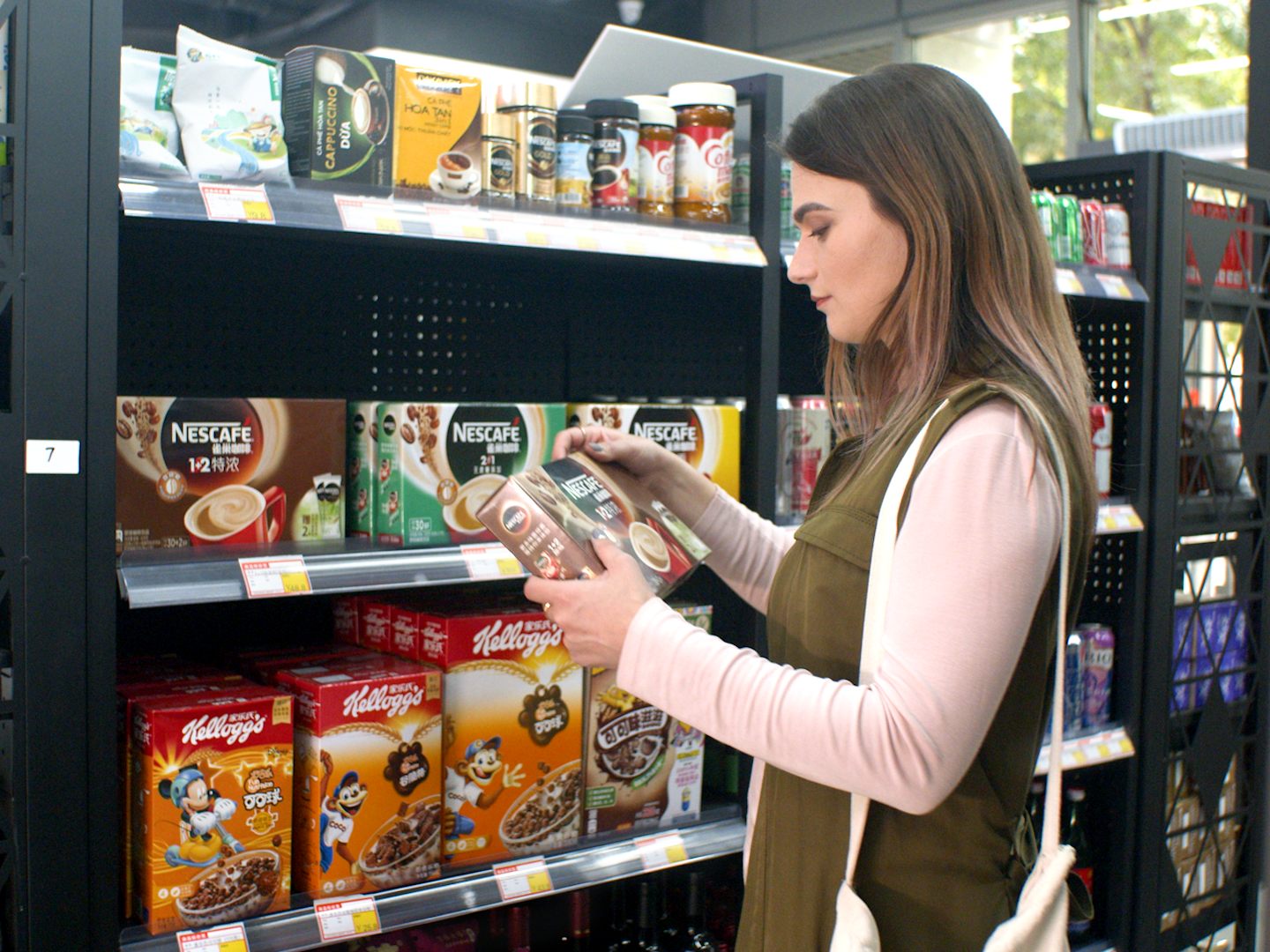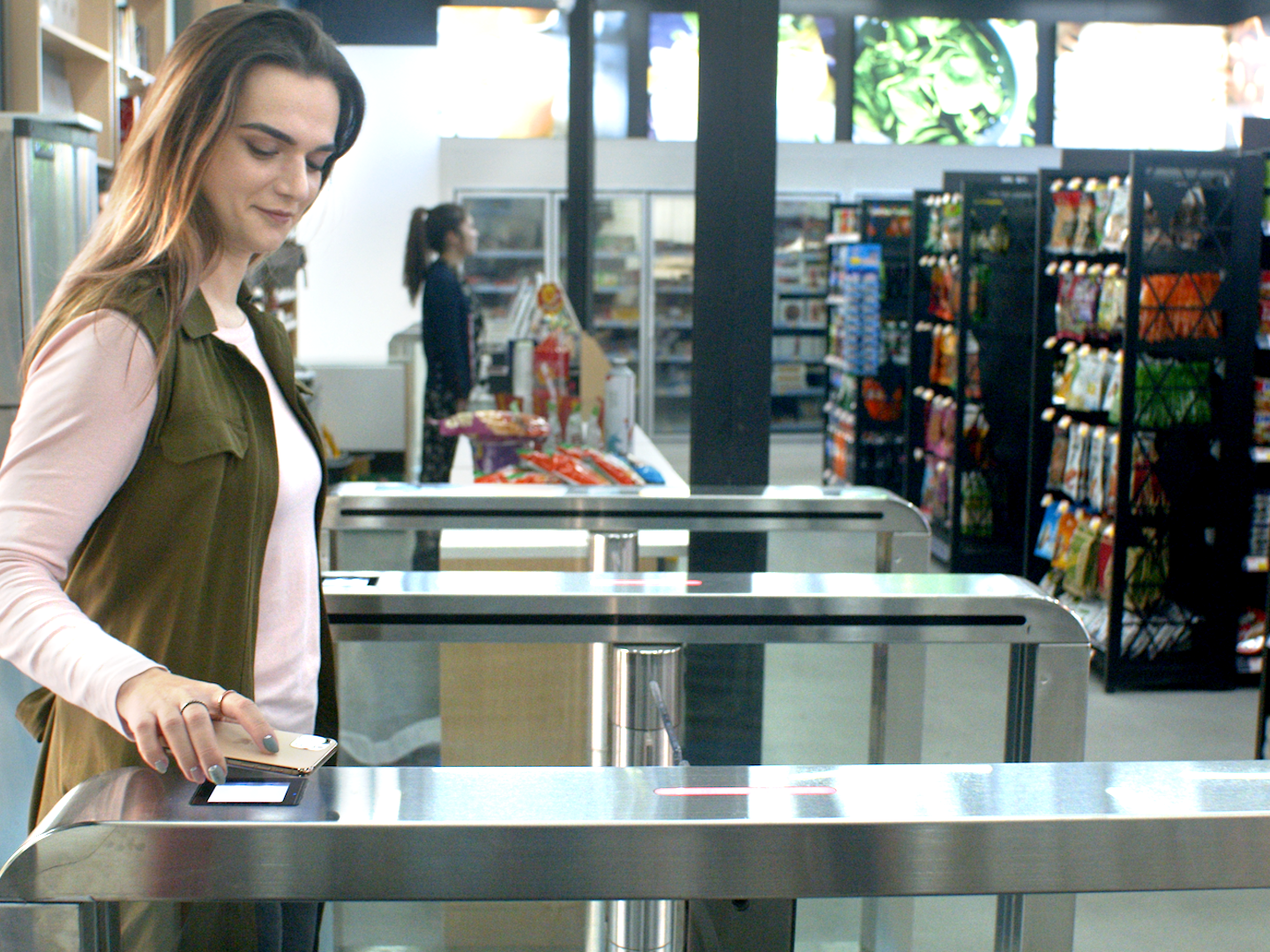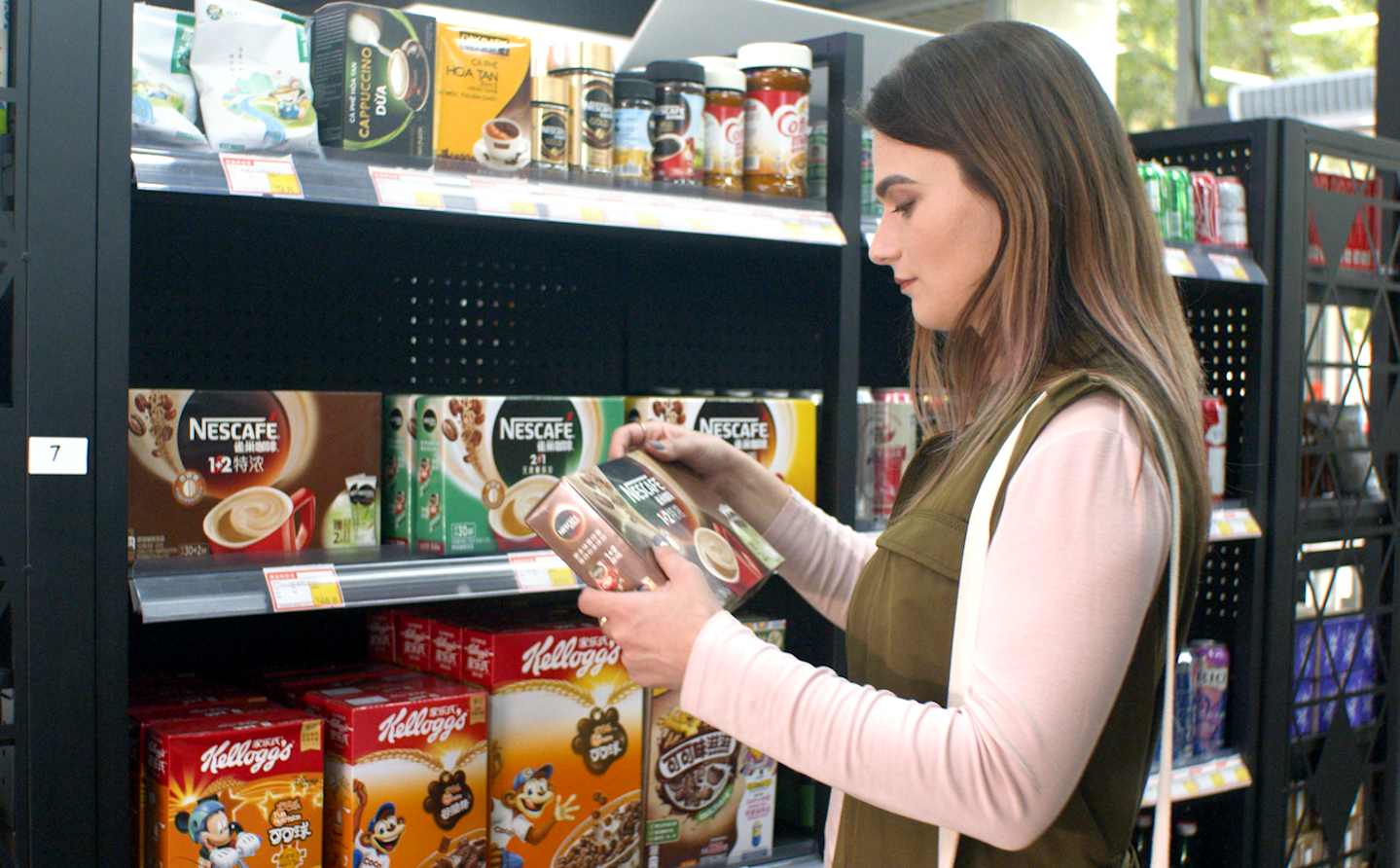
AiFi
- AiFi launched the world’s biggest camera-operated autonomous store in Shanghai.
- The company sells software so that retailers can open cashierless stores where purchases are tracked by AI.
- Steve Gu, AiFi’s CEO, told Insider how this works.
- Visit the Business section of Insider for more stories.
Autonomous retail software provider AiFi has just launched what it says is the world’s largest computer vision-powered store in Shanghai, China.
The 4,000 square-foot store uses a series of cameras to track customers so that they can walk in and out of the store without using a till.
“People can literally just walk into a shop, grab stuff, and then leave,” Steve Gu, AiFi’s CEO, told Insider.
Autonomous retail has hit the headlines in recent years thanks to the advent of Amazon Go. But where AiFi differs, Gu said, is that it isn’t a retailer itself.
Instead, AiFi is a software company, and it sells its AI technology to third-party retailers, whilst Amazon Go stores are operated by Amazon itself. Whereas Amazon Go offers what Gu called a “binary experience,” where customers have to use the autonomous system and need to scan a QR code to just enter the store, AiFi offers a hybrid solution, meaning that customers can still pay at a till if they want.
AiFi uses a series of cameras to track customers' movements in the store. It detects when customers pick products up, and when they put them down, so that their virtual baskets are automatically updated. Once the customers leave the store, AiFi then sends a digital receipt through its app.
If customers want to use the cashierless system, they simply have to scan either their credit card or the AiFi app on their way on. If they want to pay at the till, they don't have to scan anything - unlike Amazon Go stores, where you can only get access using a scanner.
AiFi has other payment solutions as well, such as a check-in kiosk at a store in the Bay Area.
Unlike some other providers of autonomous retail software, AiFi only uses these cameras. Other autonomous stores - including AiFi's earlier models - use weight sensor shelves to monitor which products customers pick up. Switching to a camera-only solution allowed AiFi to reduce installation costs by 60% without any loss to its receipt
accuracy, Gu said.
Autonomous stores need fewer staff and less space for checkouts
AiFi sells its software to third-party retailers, who can add it to existing or new stores, and it can be integrated into retailers' own systems. The company also sells pre-built stores in moveable shipping containers, which come with AiFi's software ready installed.
By making their stores autonomous, retailers need fewer staff and less checkout space, and so they can operate smaller stores.
But AiFi doesn't recommend completely replacing people, Gu told Insider. Instead, companies will have more flexibility on how they want to staff their stores, and may also choose to deploy staff in different customer service roles, he said.
According to the company, AiFi delivers "the highest industry standards" in product recognition, shopper tracking, and receipt accuracy.

AiFi
It also allows retailers to collect information on both individual and aggregate customers, such as how much time they spend in front of an item before picking it off the shelf.
The level of customization "allows the retailer to shape the shopping experience to fit their brand," Gu said.
The pandemic has accelerated demand for autonomous retail
Because of the pandemic, people have realized the "necessity" of contactless shopping, Gu explained. This has expedited the market adoption of autonomous stores, he said, which mean customers can not only avoid interacting with a cashier but also avoid waiting in a line at the checkout, where it can be hard to social distance.
They stores are also good for use in "food deserts," he explained - areas where people are far away from shops.
Across the board, autonomous stores mean people can get "what they want, when they want it" and facilitate 24/7 shopping, Gu said.

AiFi
At the new store in Shanghai, which Gu described as China's consumer hub, AiFi around 200 cameras to track more than 6,000 different products. Autonomous retail has been "well-received as a concept" in the country, Gu said, and customers are already used to using WeChat for digital payment.
Autonomous retail is also making massive bounds elsewhere in the world, Gu said. Earlier this month, the company announced plans to roll out its software at 20 existing autonomous convenience stores by April with Dutch company Wundermart.
AiFi predominantly sells its software to supermarkets, though it could explore other store types in the future, and is in contact with clients in the drugstore industry, Gu said. This is because customers traditionally want speed convenience when buying fast-moving consumer goods. Apparel stores, in comparison, could be tricky to make autonomous because people often want to try the clothes on before they buy them.
Amazon opened its first Amazon Go store back in 2018, which uses a system of cameras and sensors to track shoppers and products so consumers can grab their items and leave without stopping to physically check out. Amazon also ramping up its efforts to sell the software, known as Just Walk Out, to third-party retailers. Whole Foods, which is owned by Amazon, is among the likely candidates.
It also launched Amazon One, a biometric scanner, which allows people to pay by waving their hand, in September. As well as plans to sell it to other stores, sports stadiums, and even offices, the tech also works as an alternative entry method for Amazon Go stores - but it could face merchant adoption challenges.
